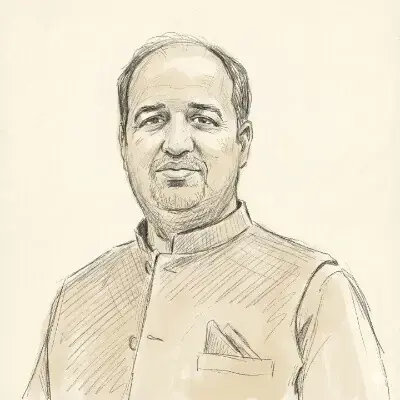ISLAMABAD: A parliamentary panel has agreed in principle to amend the Muslim Family Laws Ordinance 1961 to protect the right of childless widows from the Shia sect to get their due share of inheritance from their deceased husbands.
A meeting of the National Assembly Standing Committee on Law and Justice had a detailed discussion on the proposed amendment on Wednesday.
During the meeting, Allama Syed Iftikhar Hussain Naqvi, who was especially invited, said that ambiguity in the law has caused suffering for Shia women in obtaining their share of the inheritance of their deceased husbands.
He said a number of cases are pending in several courts because of the lack of clarity in the law, and asked for Muslim family laws to be amended. The bill, which was presented before the committee, is exclusively applicable to all Shia Muslims.
Amendment would give childless widows from Shia sect a right to one-fourth of their deceased husband’s estate
It states that if a Shia man dies issueless, his widow will receive a fourth of the estate of the deceased. If the deceased leaves behind more than one widow, the one-fourth share will be divided equally among all the widows.
The bill says that in case of a dispute arising from a difference of opinion, the parties or any of the parties may have recourse to a court of competent jurisdiction or they may approach the Mujtahid-i-Alam.
The bill’s statement of objects and reasons states that the Lahore High Court Rawalpindi bench, while hearing the matter of the competence of an issueless widow from Fiq-i-Jafriya to claim her share of the inheritance of her deceased husband, held: “It is expected that, the Government of Pakistan in Ministry of Law would take legislative measures to promulgate a codified law in this regard in order to protect the right of childless widow from Ahl-e-Tashish in getting their due shares from the inheritance of their deceased husbands.”
Law Minister Barrister Dr Mohammad Farogh Naseem supported the bill and said changes need to be made in the law to protect widows’ rights. His point of view was endorsed by other committee members, who agreed in principle to make changes.
However, committee member and former law minister Chaudhry Mehmood Bashir Virk raised some concerns about the amendment, saying new legislation could open a Pandora’s Box.
Almost all the other committee members supported the bill. It was then decided that the committee had agreed to the amendment in principle but a final decision would be made at the next meeting, when a new amended draft will be presented.
The committee also discussed another amendment to the Muslim Family Law Ordinance, exclusively applicable to Shia Muslims, related to divorce.
According to the statement of objects and reasons, Article 227(1) of the Constituion provides the foundation for legislation regarding personal law of any Muslim sect by interpreting the Quran and Sunnah according to their teachings.
The bill says that the family law ordinance deals with family matters, including divorce, for Shia followers as per their interpretation of the Quran and Sunnah.
The bill says a Shia man may pronounce talaq himself or through an authorised attorney, uttered in literal Arabic words (seegha) in the physical presence of at least two witnesses. The pronouncement of talaq would be ineffective if done jokingly, under anger, intoxication, insanity, duress or coercion of any kind.
In case of dispute, the bill says the parties or any of the parties may have recourse to a court of competent jurisdiction or by approaching the Mujtahid-i-Alam.
Mr Naqvi told committee members that Shia divorce cases are decided in court in accordance with family law, in which a divorce becomes effective after a court procedure. He said that Shia scholars do not consider such divorces until the husband pronounces the talaq in Arabic seegha in front of two witnesses.
“Later on, Shia women face difficulty as their ex-husbands exploit the situation and after getting a decree from the courts do not pronounce Arabic seegha, which causes problems for women,” he said.
The committee held a detailed discussion on the bill, and then decided to seek a briefing from the chairman of the Council of Islamic Ideology at its next meeting after which the fate of the amendment will be decided.
Published in Dawn, May 16th, 2019




































